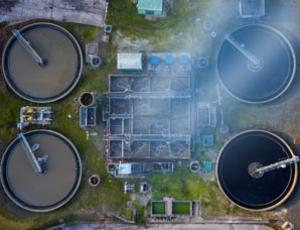The generation of hydrogen sulfide (H2S) from sulfate-reducing bacteria within wastewater systems or from industrial processes, remains a nuisance and persistent challenge for municipal and industrial companies.
The Importance of Odor Control
Smells similar to "rotten eggs" or "cabbage" are a common concern around municipal or industrial facilities, especially if there is an onsite biological wastewater treatment system. This smell is most likely caused by the presence of H2S, which is a naturally occurring by-product when there is an anaerobic reduction of organic matter.
In addition to the unpleasant smell, failing to properly manage H2S can result in serious consequences that may affect the operation of your facility.
Three Main Reasons to Focus on Odor Control Initiatives
1) License to operate
Even at low concentrations, H2S can be detected by the human nose. Depending on the point-source of the odor, season, wind conditions, and the proximity of neighboring homes or other facilities, sites can be affected by odor complaints. These complaints can result in a loss of time and money as facilities look to locate and remedy the odor source. Though an odor complaint can be inconvenient, what is more at risk is a facility's brand or reputation. By failing to properly mitigate odors, managers will be facing comprehensive environmental investigations and potential public relations challenges. These can result in fines or at the minimum, a decrease in positive perception within the community.
2) Health & Safety
Preserving the health and safety of employees is the largest risk of not properly managing H2S onsite. Even at low concentrations (2 ppm), H2S can negatively affect the human body by causing nausea, respiratory issues, and fatigue. At slightly higher concentrations (100+ ppm) the risk level grows. As the concentration of H2S increases to 200 ppm or higher, there is an imminent possibility of severe injury or death. Therefore, the stakes are high to ensure hydrogen sulfide is properly managed to maximize employee safety and preserve human life.
3) Corrosion Protection
Every year corrosion causes significant damage to infrastructure and equipment. Increased levels of H2S within metal pipes, pumps, and tanks can cause pitting and can cause premature failure and downtime. Additionally, hydrogen sulfide can have a similar effect on concrete infrastructure, such as sewer lines and concrete basins. Properly reducing the sulfide concentration can have an economic and operational benefit by maximizing the service life of the core infrastructure that is at risk.
Areas to Apply Odor Control Mitigation
Municipal Applications
- Headworks
- Grit Removal
- Collection Systems/Lift Stations
- Primary Clarifiers
- Digesters
- Bio-solids Dewatering
Industrial Applications
- Pulp & Paper
- Meat Processing
- Steel
- Refineries
- Geothermal Power
- Syngas
- Chemical Plants
- Pharmaceutical
- Landfill Leachate
We are committed to reducing odors while improving health and safety
Veolia Water Technologies has a variety of chemistries, solutions, and technologies designed to help municipal and industrial customers overcome their hydrogen sulfide (H2S) Challenges

Hydrex™ Sulfide Elimination Program
Technology Information: Veolia’s Hydrex™ Sulfide Elimination System offers clients several treatment options that are non-hazardous, pH neutral, and biodegradable. This solution doesn't mask the problem, it proactively works to eliminate it.
Featured Resources & Information







